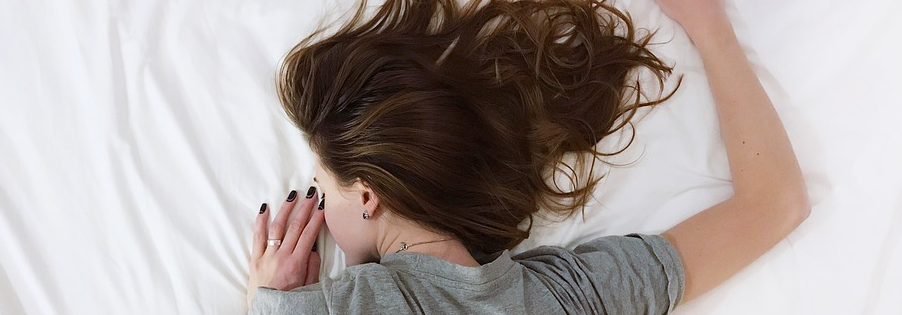If you experience difficulty with your sleep, you are not alone – 25% of Canadian adults say they are not happy with the quality of sleep that they are getting, 15% say that it impacts their daily life and 6-10% meet the criteria of an insomnia disorder.
Here are some interesting facts about sleep:
-
-
- Almost 50% of adults get less than the recommended amount of nightly sleep (8-9 hours)
- 57% of children get less than needed (9-14 hours/night depending on the age of the child, infants need even more)
- 71% of parents believe their children get enough sleep
- Only 13% of high school students and 41% of middle school students get the recommended 8.5-9.5 hours of sleep per night
- The CDC reports ‘Insufficient sleep is a public health epidemic’
- During sleep the lymphatic system clears the brain of metabolic waste, improving brain function [1]
-
We all know the individual benefits of getting a good night’s sleep, but in addition to knowing how good it can feel, studies have shown that getting a good night’s sleep has an impact on many health conditions.
Studies show that sleep deprivation [2]:
-
-
- Contributes more to chronic pain than pain contributes to poor sleep [3]
- Causes an increase in inflammatory markers
- Can increase blood pressure [4]
- Decreases the hormone that makes us feel full (satiety hormone – leptin) and increases our hunger hormone (ghrelin), therefore sleep deprived people eat more calories, especially women [5]
- Contributes to metabolic syndrome (insulin resistance, glucose intolerance, high blood pressure, obesity and dyslipidemia) [6]
- Increases the severity of gut disorders such as Inflammatory Bowel disease, IBS, GERD and inflammatory liver disease [7]
- Is associated with cognitive decline [8]
- Chronic insomnia increases risk of depression by 40%
-
On the Positive Side
Increasing sleep by only 30 minutes is found to have a substantive impact on clinical well-being, so even if you can increase your sleep by 30 minutes you will see health benefits and feel better!
My Approach
As a naturopathic doctor, I always ask someone about their sleep as I believe it can be at the root of a lot of health concerns. As discussed above, if you are not getting enough restful sleep this can impact your overall health in many ways.
When looking at improving your sleep quality, like most health concerns, there is often more than one change needed to improve it. Sometimes this can feel overwhelming, but I try to encourage changes in steps and help you see that making small changes can have a big impact. It is often helpful to have someone help you navigate through different support options that can be beneficial.
My approach to sleep support combines lifestyle, nutrition, guided relaxation and supplement support. There are many natural sleep support options available, and like other supplementation, often these choices can be overwhelming to choose from. There are many great options, but it is a matter of finding the right support for you.
I recommend a 2- or 3-week trial of a support supplement, in addition to making other lifestyle and nutrition changes, until we find the right sleep support that helps you fall into a proper sleep cycle. There are many supplements that are truly helpful for sleep including Magnesium, Melatonin, L-theanine, Gaba, Valerian, Lemon Balm and other support. Going through your health and sleep history will help determine which one is right for you.
Sometimes you just need to reset a healthy sleep pattern and will not need to continue supplementation for sleep, and it will be enough to continue healthy lifestyle and nutrition support. Other times I feel it could benefit you to stay on a sleep support with periodic breaks, when you know your sleep will not be as difficult, such as holidays and during warm summer months.
Below are some recommendations you can do on your own, that can often fix the problem without needing to see an ND or other health care provider for support. If you are doing many of the recommendations for sleep hygiene and still can’t get a good sleep, I believe it would be beneficial to set up a consultation to review if there are other factors contributing to poor sleep. Often there can be hormonal factors or other health issues contributing to insomnia. Balancing cortisol levels (stress management), thyroid and progesterone levels is often needed, as well as looking at other support that can be helpful.
Sleep deprivation can alter our natural cortisol curve – cortisol peaks in the morning and then gradually decreases through the day. It has been shown that if we don’t get enough sleep, our cortisol levels do not decrease properly through the day, leaving it too high at night, which makes it hard to fall sleep. This creates a vicious cycle, the less sleep we get, the harder it is to fall asleep. This is the typical ‘wired but tired’ sensation that we can often feel. Using supplements and lifestyle changes can help reset the proper cortisol curve. High evening cortisol also leads to insulin resistance, affecting our appetite, metabolism and other hormones.
Of course, individual sleep needs are different. If you only need 7 hours of sleep and feel like you have great energy, you may be one of the few that doesn’t need 8-9 hours. Also, it is possible to get too much sleep as well, it all depends on how you feel on how much sleep you are getting. I often also see that our sleep patterns follow the daylight patterns and often find that an individual will need more sleep in the months with less daylight, and less sleep in the months with more daylight. Transitions times can be difficult though (when days get longer, we stay up longer and don’t get enough sleep), so pay attention to these times of the year and how much sleep makes you feel rested.
Things You Can Do for Your Sleep [9]
-
- Gradually go to bed earlier
If you don’t have trouble falling or staying asleep, but have developed a habit of staying up later than you should, then try to gradually go to bed earlier. This is a common habit as it is human nature to fight going to bed in order to have some of our own time! If you are going to bed late, don’t all of a sudden try to go to bed hours earlier. This will not be an easy change to make, and may create lying in bed and not being able to fall asleep. Start with going to bed 15 minutes earlier each 1-2 weeks until you are going to bed at a time that allows you to get 8-9 hours of sleep.
- Decrease or avoid stimulants
If you are having trouble falling or staying asleep gradually decrease or avoid caffeine. Even if you are only drinking caffeine in the morning, it still can have an impact on your sleep quality. If you are drinking more than one cup daily, decease gradually or you may experience withdrawal symptoms. Decrease by 50% every 1-2 weeks. Caffeine includes chocolate as well, although minimal amounts of caffeine can be beneficial for overall health, observe how sensitive you are to caffeine, and if it is affecting your sleep.
-
- Establish a bedtime routine
Sleep hygiene is very important and developing a routine in the evening can help the body settle into a good night’s sleep. Dimming the lights an hour before bed, avoiding computer or TV use, doing an evening relaxation exercise along with some gentle mobility can all be helpful. However, do not feel stressed or limited by this routine, and don’t feel like this routine has to be rigid. Allow yourself 1-2 evenings per week where you are allowed to go out with a friend or spouse, spend an evening binging on Netflix (we are only human), but try to make these later evenings only 1-2 hours outside of your normal sleep routine. Create more structure when your sleep needs more support, and allow more flexibility when you are sleeping better.
- Regular exercise
Studies have shown that people who get regular exercise sleep better. Do not exercise late in the day to get the sleep-promoting benefits. Try to get 20 minutes of moderate exercise 3-5 x weekly, getting a variety of movement that you enjoy (body weight, aerobic, mobility and stretching).
- Avoid electronics before bed and keep your phone out of your room
Avoid TV or computer for 30 mins to 2 hours before bed. Blue light from electronics has been shown to suppress melatonin and interfere with circadian rhythms. Some people benefit from reading or journaling for 10-20 mins before bed to help fall asleep. Phones can be very disruptive, especially if you are constantly getting notifications and communications. Allow yourself to ‘turn off’ and have time away from being connected. Frequencies emitted from cell phones can interfere with the brain’s ability to get restful sleep, if you do keep it in your room, place it away from your bed and turn it onto airplane mode.
- Minimize evening fluid intake if you are waking to go to the bathroom
Minimize fluid intake for 1-2 hours before bed to see if that eliminates or reduces your nighttime waking. If you are feeling thirsty, take small sips of water and hold it in your mouth to quench thirst. It’s amazing how often I see this simple change decrease waking in the middle of the night to go to the bathroom.
-
- Use guided relaxation techniques
There are many guided relaxation exercises that you can find for free. Guided relaxation helps our nervous system go into a relaxation response making it easier to fall and stay asleep. Some of my favourite recordings are by Jennifer Piercy – Yoga Nidra for Sleep and Bone Deep Sleep, but there are many more. First listen to a recording while doing another daily task to see if you like the voice and words, then use it before bed to help calm the nervous system.
-
- Have a cooler temperature while sleeping
Having the room temperature at 18 degrees can sometimes improve sleep quality.
Guided Relaxation Techniques
I’m a big believer in the benefits of guided relaxation. It is one of the best ways to alleviate anxiety, stress and insomnia. Studies have shown that we only go into a relaxed nervous system response when we are asleep or when we are in a meditative state. Doing these relaxation exercises will help train your nervous system to relax and fall asleep easier and stay asleep longer.
Recipes from Some of My Favourite Websites
Use these recipes as ideas and modify them. For example, with the Coconut No Bake Cookies you can put in less sugar, less honey or maple syrup as a substitute, use almond or another nut butter, and you could also find a recipe with no grain in it.
Movement Link
Gut Connection
More and more research has shown that having a healthy gut can contribute to our overall health. For individuals with IBS, it is shown that improving your sleep will improve your symptoms. Taking 3 mg of melatonin at bedtime has been show to decrease abdominal pain due to IBS.
References
1. Jessen NA, et al. The Glymphatic System – a Beginners Guide. Neurochem Res. 2015;40(12):2583-2599.
2. Darley, Catherine. The Sleep Disorders Masterclass – Relevance in Primary Care
3. Finan PH. J Pain 2013;14(12):1539-1552
4. Pepin, JL. Sleep Med Rev. 2014;18(6):509-19.
5. Mullington JM. Prog Cardiovasc Dis. 2009;51(4):294-302
6. Koren D. Role of sleep quality in the metabolic syndrome. Diabetes, Metabolic Syndrome and Obesity: Targets and Therapy. 2016;9:281-310
7. Ali, T. World J Gastroenterol. 2013;19(48):9231-9239
8. Johar H, et al. SLEEP 2016;39(1):217–226
9. https://www.drhartman.ca/blog/the-naturopathic-approach-to-insomnia/

